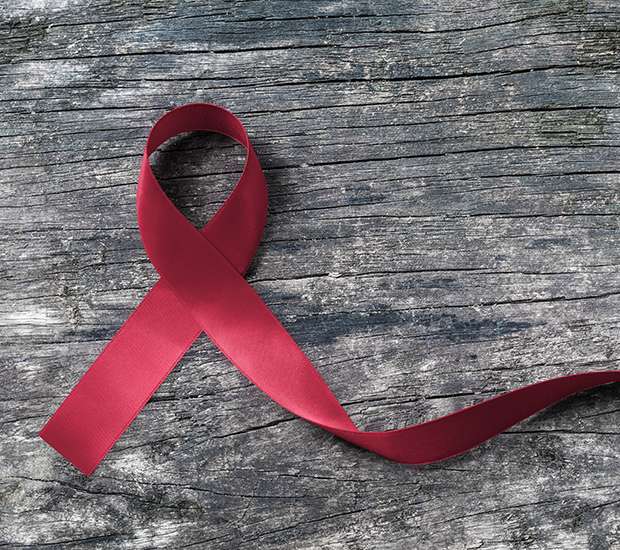Oral Cancer Screenings In Huntersville, NC
Save Your Smile with Regular Oral Cancer Screenings
Oral cancer screenings are essential for early detection and prevention of oral cancers. Regular check-ups can identify issues before they become serious, making these screenings an important part of your dental health routine. At Lake Norman Dentistry, our experienced dentist in Huntersville, NC, Dr. Scott Guice emphasizes the significance of these screenings to help keep your mouth and body healthy.
What Is An Oral Cancer Screening?
An oral cancer screening is a thorough examination of the mouth, throat, and surrounding tissues to detect early signs of cancer. The screening may include visual inspections and palpation of the neck and jaw to identify any unusual lumps, sores, or lesions. This simple procedure is quick and can be done during a regular dental visit.
Why Are Oral Cancer Screenings Important?
Oral cancer screenings are vital for several reasons:
- Early Detection: Like many cancers, oral cancer is easier to treat when detected early. Regular screenings can catch abnormalities before they become more serious.
- Awareness of Risk Factors: Screenings can help identify individuals at higher risk, allowing for preventive measures and lifestyle changes.
- Comprehensive Health Check: Oral cancer screenings are often part of routine dental check-ups, contributing to overall health monitoring.
What to Expect During an Oral Cancer Screening
During your visit to Lake Norman Dentistry you can expect the following:
- Visual Examination: Your Huntersville dentist will examine your mouth for any unusual lesions, swelling, or discoloration.
- Palpation: The dentist may gently feel the lymph nodes in your neck and under your jaw to check for any abnormalities.
- Patient History: You’ll discuss your medical history, including any risk factors or symptoms you may be experiencing.
- Further Testing: If any suspicious areas are found, further tests, such as a biopsy, may be recommended.
Check out what others are saying about our oral cancer screening services on Yelp: Oral Cancer Screening Huntersville
How Often Should You Get Screened?
The frequency of oral cancer screenings can depend on your individual risk factors. For most adults, it’s advisable to have a screening at least once a year during your regular dental check-up. If you have higher risk factors, Dr. Guice may recommend more frequent visits.
Frequently Asked Questions
What are the signs of oral cancer I should look for?
Common signs include persistent sores, lumps in the neck, difficulty swallowing, and unexplained bleeding. If you notice any of these, consult your dentist promptly.
Are oral cancer screenings painful?
No, the process is usually painless and quick. Most people find it no more uncomfortable than a regular dental exam.
What happens if something abnormal is found?
If abnormalities are detected, Dr. Guice will discuss next steps, which may include further testing or referrals to specialists.
Does insurance cover oral cancer screenings?
Most dental insurance plans cover regular check-ups, which include oral cancer screenings. It’s best to check with your provider for specifics.
Prioritize Your Oral Health at Lake Norman Dentistry
Oral cancer screenings are a vital part of maintaining your overall health. By staying proactive and scheduling regular visits, you can help catch potential issues early and take control of your dental well-being. If you’re in the Huntersville, NC area or surrounding neighborhoods like Cornelius, Davidson, or Mooresville, schedule an appointment with Dr. Scott Guice at Lake Norman Dentistry by calling (704) 895-3858. Your health is worth it!
Call Us Today
Regular oral cancer screenings can save your life. If you live in Huntersville, NC, we encourage you to call 704-895-3858 and schedule an appointment with our dental office today.
Questions Answered on This Page
Q. What happens during an oral cancer screening?
Q. Do you provide treatment for oral cancer?
Q. Is there anything I can do at home to help prevent oral cancer?
People Also Ask
Q. What do I need for a dental checkup?
Definition of Dental Terminology
- Biopsy
- A biopsy is a medical test that a medical professional uses to extract a sample of tissue to determine the exact cause of a disease.
- Dental Checkup
- A dental checkup is an appointment that involves cleaning the teeth, identifying any signs of infection and removing said signs of infection at least once every six months in the office.
- Dental Prophylaxis
- A dental prophylaxis is a professional and detailed cleaning that involves the removal of plaque, calculus and stains from the teeth.
- Dentist
- A dentist, also known as a dental surgeon, is a doctor who specializes in the diagnosis, prevention, and treatment of diseases and conditions of the oral cavity.
- Dysphagia
- Dysphagia is the difficulty or discomfort hat one can experience when swallowing due to this disease.
- Gingivitis
- Gingivitis is the inflammation of gum tissue that results from plaque, other infections in the mouth and poor oral hygiene.
- Oral Cavity
- The term oral cavity is another name for the mouth, including the lips, cheeks, gums, teeth, the front of the tongue and the roof of the mouth.
- Oral Mucosa
- The oral mucosa is the mucous membrane that lines the inside of the mouth consisting of oral epithelium and lamina propria.
- Oral Squamous Cell Carcinoma
- Oral squamous cell carcinoma is a common form of oral cancer that occurs within the mouth, which can also result from excessive smoking and alcohol use.
- Otalgia
- Otalgia is a type of earache that can result from multiple causes, including oral health issues and infections.
- Precancerous Lesions
- Precancerous lesions are morphologically altered tissue that has a high probability of causing oral cancer to occur in those specific spots.
- Preventive Dentistry
- Preventive dentistry is the dentistry that focuses on maintaining oral health in order to prevent the spread of plaque, the formation of tartar and infections in the mouth.
- Tartar
- Tartar forms when plaque builds up on the surface of the teeth and calcifies into a hard surface that is much more difficult to remove and will require professional treatment.
- Tobacco Use
- Tobacco use can cause significant problems for one’s overall oral health including staining and promoting certain infections.
Back to top of Oral Cancer Screening




